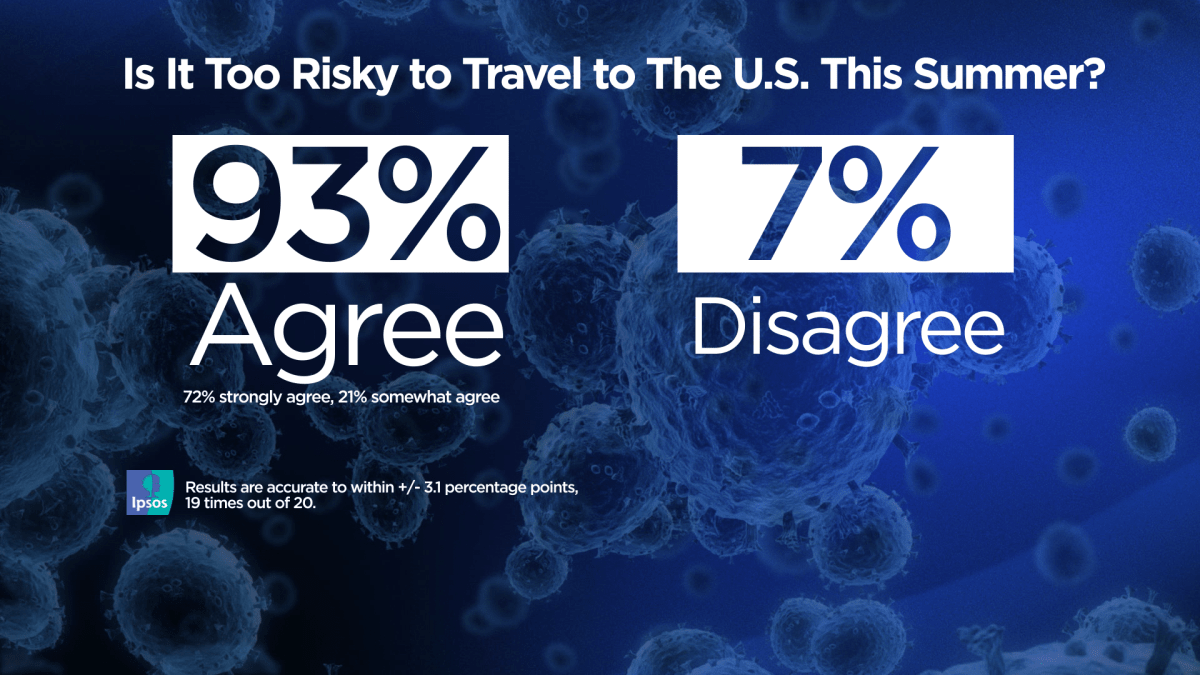Canadians appear to be proceeding with caution amid the COVID-19 pandemic — so much so that they would support a second shutdown if needed, according to a new poll.

The survey, conducted by Ipsos for exclusively Global News between July 8 and July 10, found 77 per cent of Canadians anticipate there will be a second wave of the novel coronavirus, despite efforts to stem its spread.

Ipsos Public Affairs CEO Darrell Bricker told Global News this number is so high because Canadians are “watching the news closely.”
“They’re treating it almost like emergency broadcasts and something that’s been very consistent coming out of our health care professionals, and the people who manage our health care system, and our politicians is that we need to prepare ourselves for a second wave, so that message is getting through,” he said.
Experts say a second wave of the virus is possible in Canada, but that it is difficult to know when that could happen or how severe it would be.
However, several countries, including South Korea, China and the United States, have already seen new spikes of COVID-19 infections.
What’s more, 83 per cent of Canadians said they would support shuttering most non-essential businesses if the country does experience a second wave.
Bricker said this number reflects the consensus from Canadians that the measures implemented at the beginning of the pandemic were successful.
“That’s really the reason only 23 per cent of the population think what we did the last time in March up until this point has been an overreaction,” he said.
“That’s almost three quarters of us saying that we think what was done was the right thing to do.”
Masks and public spaces
Canadians also appear to be playing it safe when it comes to face masks amid the COVID-19 pandemic.

Get weekly health news
According to the survey, 71 per cent of respondents said they wear a face mask when they enter an indoor public space such as a grocery store or bank.
Seventy-nine per cent of Canadians said they would be supportive if their municipality made it mandatory to wear face masks.
Eighty-two per cent said they feel fewer people would contract the virus if everybody wore a mask.
Bricker said these numbers are so high because Canadians view masks as an “opportunity to control things for themselves.”
He said the public is not only looking to governments, businesses and institutions to keep them safe, but also want to feel empowered.
“And they feel that masks are a big part of that,” he said. “In fact, you know, in the past, mask probably signalled some form of danger, now they signal some form of safety because if you wear a mask, you’re probably doing the other things that are required in order for you to be safe.”
Travelling amid COVID-19
The poll also found that Canadians are hesitant to travel as the pandemic continues, particularly to the United States.
According to the survey, 93 per cent of Canadians feel it would be too risky to travel to the U.S. this summer, and 85 per cent said the Canada-U.S. border should remain closed until at least the end of 2020.
Bricker said he didn’t find these numbers shocking at all, adding that there is a consensus across Canada that the country needs to be “very, very cautious.”
He said Canadians are watching what is happening south of the border very closely.
The U.S., which is the epicentre of the global pandemic, now has more than 3.4 million confirmed cases of COVID-19. So far, 136,458 people have died from the virus.
“(Canadians are) looking at what they’re seeing in the United States and saying ‘whatever we do, we can’t have that in this country,'” Bricker said.
“So that means controlling the borders, but it also means not exposing yourself and not visiting the United States anytime soon.”
The Canada-U.S. border is currently closed to non-essential travel, though the deal struck between the two countries is set to expire on July 21.
However, officials on both sides of the border who are familiar with the ongoing talks, speaking on condition of anonymity to discuss matters not yet public, told The Canadian Press another extension until late August is all but inevitable, thanks to a wave of new COVID-19 cases that’s swamping efforts to restore a modicum of normality in the U.S.

However, the U.S. is not the only place to which Canadians are wary of travelling. An overwhelming majority — 89 per cent — of the survey’s respondents said they felt it was too risky to travel overseas this summer.
That seems to be in line with concerns experts have.
Earlier this month, Canada’s two largest airlines announced they would begin selling the middle seats on their aircraft again, as the country continues to ease coronavirus restrictions.
Meanwhile, the Public Health Agency of Canada continues to recommend Canadians continue to avoid all non-essential travel during the pandemic.

However, the survey suggests Canadians are slightly less worried about domestic travel.
When respondents were asked whether they felt travel between provinces is risky, 62 per cent agreed.
Bricker said this is likely because Canadians feel they have “more control” when travelling within Canada, adding that people may be able to avoid taking planes or trains to their destination.
“What they can do is they can probably control their own transportation in a car, maybe even an RV that they feel they feel that they’re more capable of controlling their safety within the country than they do going abroad,” he explained.
— With a files from Global News’ Emerald Bensadoun and The Canadian Press
METHODOLOGY: This Ipsos poll was conducted between July 8 and July 10, 2020. For this survey, a sample of 1,000 Canadians from the Ipsos I-Say panel was interviewed. Quotas and weighting were employed to ensure that the sample’s composition reflects that of the Canadian population according to census information. The precision of Ipsos online polls is measured using a credibility interval. In this case, the poll is accurate to within ± 3.1 percentage points, 19 times out of 20, of what the results would be had all Canadian adults been polled. The credibility interval will be wider among subsets of the population. All sample surveys and polls may be subject to other sources of error, including, but not limited to coverage error, and measurement error.











Comments
Want to discuss? Please read our Commenting Policy first.